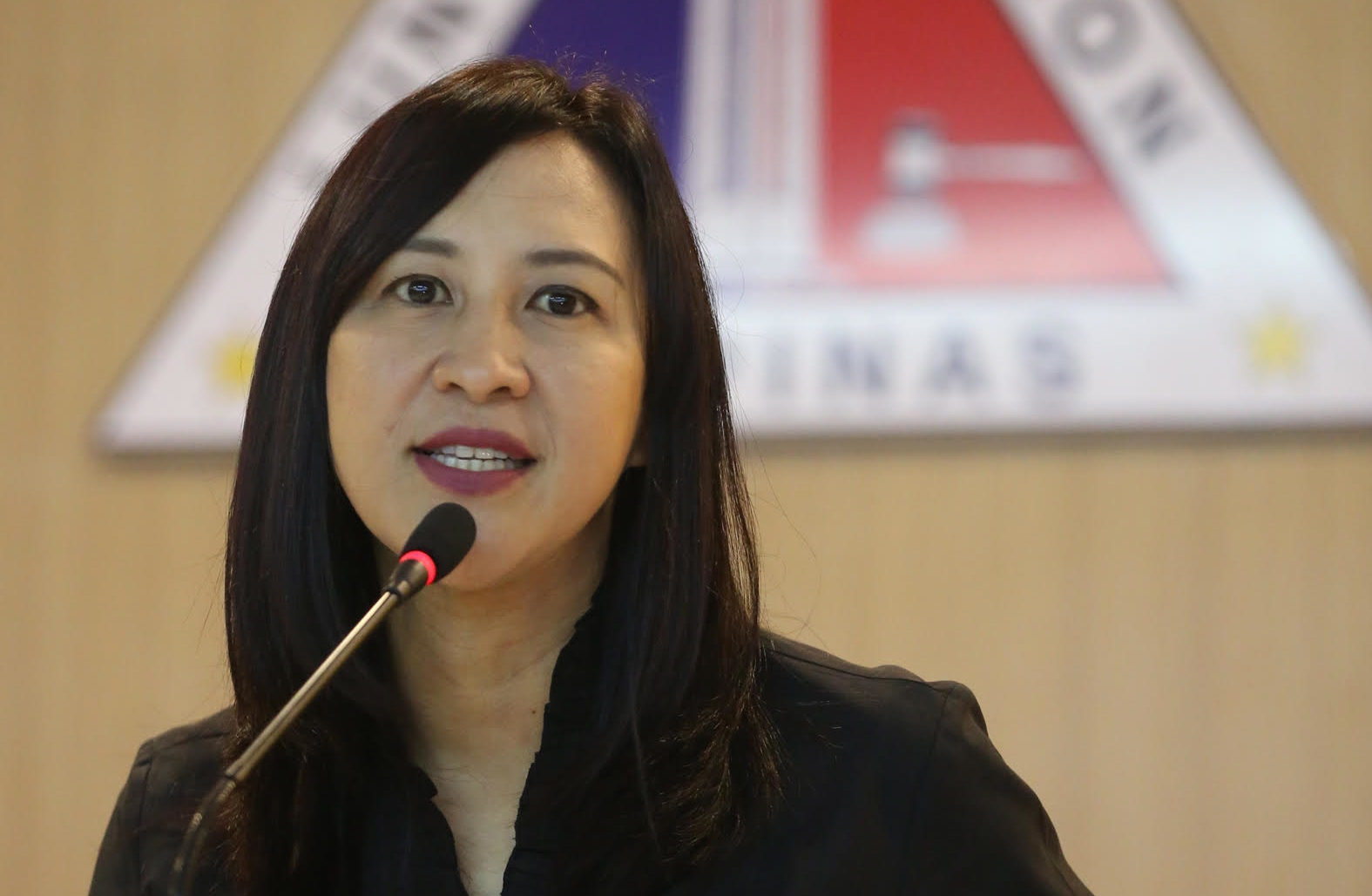
Quezon City Mayor Joy Belmonte. INQUIRER FILE PHOTO / NINO JESUS ORBETA
Majority of surveyed Quezon City residents are still undecided about being vaccinated against COVID 19 because of safety and efficacy issues, according to Quezon City Mayor Joy Belmonte.
Belmonte said the city has an information drive to inform residents about the basics of vaccination, and would later roll out a campaign to explain to them the characteristics of the vaccines approved by the national government.
Belmonte said the city conducted the survey by asking applicants for its Unified Quezon City ID card about their willingness to get a COVID 19 vaccine.
“What is most important to us now is to determine if they want to be vaccinated or not. And in Quezon City, many are willing and only few are not. But the majority are undecided and they are undecided based on issues like like safety and efficacy,” Belmonte said at the Laging Handa briefing.
The survey only asked residents about their willingness to get the vaccine but did not ask them for their preferred brand as she believes people are not yet aware of the different characteristics of these brands as of now.
“I don’t think people at this stage, when information is inadequate, are in a position to say ‘this is my preferred brand,’” she said.
She said Quezon City would encourage residents to be vaccinated and to trust the ones chosen by the Food and Drug Administration.
“It is our duty to convince our citizens that they must be vaccinated so we can achieve herd immunity. And that we can reassure them that the vaccines that we will be offering to them have undergone stringent protocols and are in fact the best vaccines that we can offer to them,” she said.
It has already rolled out a webinar series that explains what a vaccine is, why it is necessary, and what are its effects, she said.
Later on, it would focus on explaining the characteristics of each vaccine that would be approved by the FDA and offered by the national government, she said.
“At least given the limited choices, they can make some form of choice,” she added.
The messaging would be different for each sector, such as the youth and senior citizens, she further said.
“We will tailor-fit the message to address the very concerns of our people,” she said.
So far, the FDA has given emergency use authorization for the Pfizer vaccine.
The government is planning to procure vaccines from different manufacturers, including Pfizer.
It has been questioned over its preference for China’s Sinovac vaccine, which has a lower reported efficacy rate compared to others.
Quezon City has inked a deal for 1.1 million doses of the AstraZeneca vaccine, which would be good for 550,000 individuals.
The city is also in talks with other pharmaceutical companies who have gotten emergency use authorization for their vaccines from stringent regulatory authorities in other countries, said Belmonte.
But since Quezon City’s P1 billion vaccine budget is not enough to target majority of its 2.9 million population, it would also rely on the support of the national government and would trust the vaccine it would provide, she said.
“And in that regard, we trust in the judgment of the national government, what vaccines it would allocate for the remaining residents of Quezon City who would not be covered by our P1 billion budget,” she said.
Meanwhile, after securing doses of the AstraZeneca vaccine, Baguio City is eyeing the purchase of more vaccines from Russia’s Gamaleya Research Institute and the American companies Pfizer and Moderna, according to Mayor Benjamin Magalong.
Magalong said the extra vaccines that Baguio would order would be for contingency and for sharing with neighboring municipalities that were unable to strike vaccine purchase deals.
Baguio has a deal for 380,000 doses of the United Kingdom’s AstraZeneca vaccine, which would cover 190,000 individuals or about 70 percent of the city’s population, said Magalong.
“We’re also negotiating with Gamaleya to get a certain number of doses and another company from the US, either Pfizer or Moderna. We’re asking for help from the national government to be able to negotiate with them,” he said at the Laging Handa briefing.
He said Baguio wants to buy more vaccines so that it could share these with nearby towns.
“They’re our neighbors, we have to help them,” he added.
He also said Baguio is preparing communication materials to inform its residents of the importance of the vaccine and what they could expect once they have been given the shots.
The people would be informed about the possible side effects of the vaccines, such as some numbness and fever, which are normal reactions for most, he said.